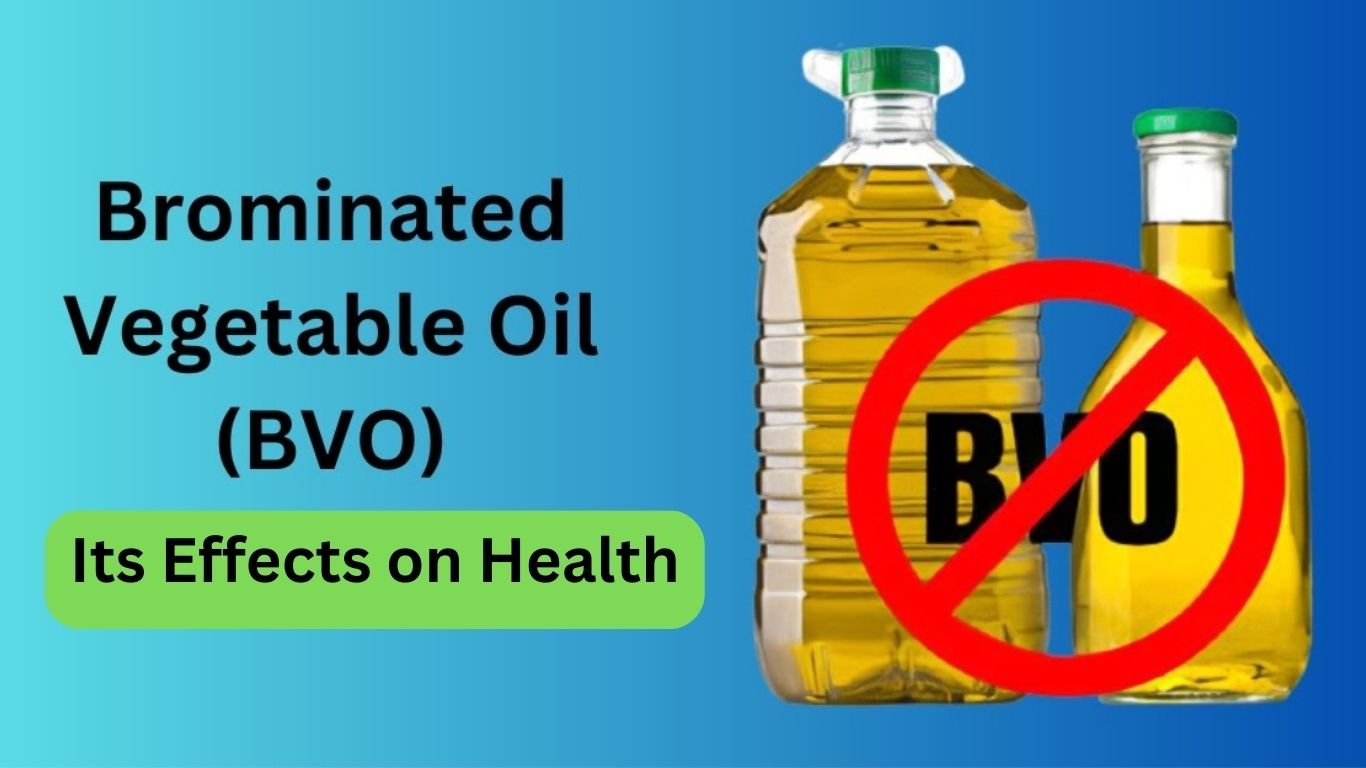Brominated Vegetable Oil (BVO) is a food additive that often raises questions that what is brominated Vegetable Oil and Its Effects on Health? Commonly used as an emulsifier in citrus-flavored soft drinks and certain food products, it’s crucial to understand its properties, potential health concerns, available research findings, regulations, and alternatives.

Introduction to Brominated Vegetable Oil and Its Effects on Health
Brominated Vegetable Oil, abbreviated as BVO, is an additive primarily used as an emulsifier in citrus-flavored soft drinks. It helps in maintaining the flavor consistency and stability of the beverage by preventing the separation of oils and flavors.
Understanding Brominated Vegetable Oil
BVO is essentially vegetable oil (typically soybean or corn oil) that has been bonded with bromine molecules. This process results in an additive that is used to improve the stability and consistency of certain beverages and foods.
BVO: Its Role in Food and Beverage Industry
BVO has gained popularity for its emulsifying properties, especially in citrus-flavored soft drinks. The emulsification process ensures that the flavors and oils are evenly distributed throughout the beverage, enhancing the taste and quality.
Potential Health Implications of BVO
However, the use of BVO in food and beverages has raised concerns regarding its potential impact on human health. Studies have shown that excessive consumption of BVO can lead to bromine accumulation in the body, which may have detrimental effects.
Insights from Research Studies
Ongoing research is aiming to comprehend the extent of the potential health risks associated with BVO consumption. These studies are critical in establishing a clear understanding of the effects of bromine accumulation and its consequences on our health.
Regulatory Measures for BVO
To address the potential health risks associated with BVO, regulatory agencies have set specific limits on its usage in food and beverages. For instance, the FDA in the United States has established limits on the amount of BVO that can be used in different products to ensure safe consumption levels.
Exploring Alternatives to BVO
In response to the health concerns surrounding BVO, some manufacturers are seeking alternative emulsifiers that can achieve similar effects without potential health risks. Substances like gum arabic and xanthan gum are being explored as healthier substitutes.
Consumer Awareness and Informed Choices
Consumers play a vital role in addressing the concerns related to food additives like BVO. Being aware of the ingredients in the products they consume and understanding their potential effects on health empowers consumers to make informed and conscious choices.
Conclusion
Brominated Vegetable Oil (BVO) is a commonly used additive in the food and beverage industry, especially in citrus-flavored soft drinks. However, being mindful of its potential effects on health is essential. While further research is needed to fully understand the long-term impact of BVO consumption, consumers can opt for healthier alternatives and make informed choices to prioritize their well-being.
